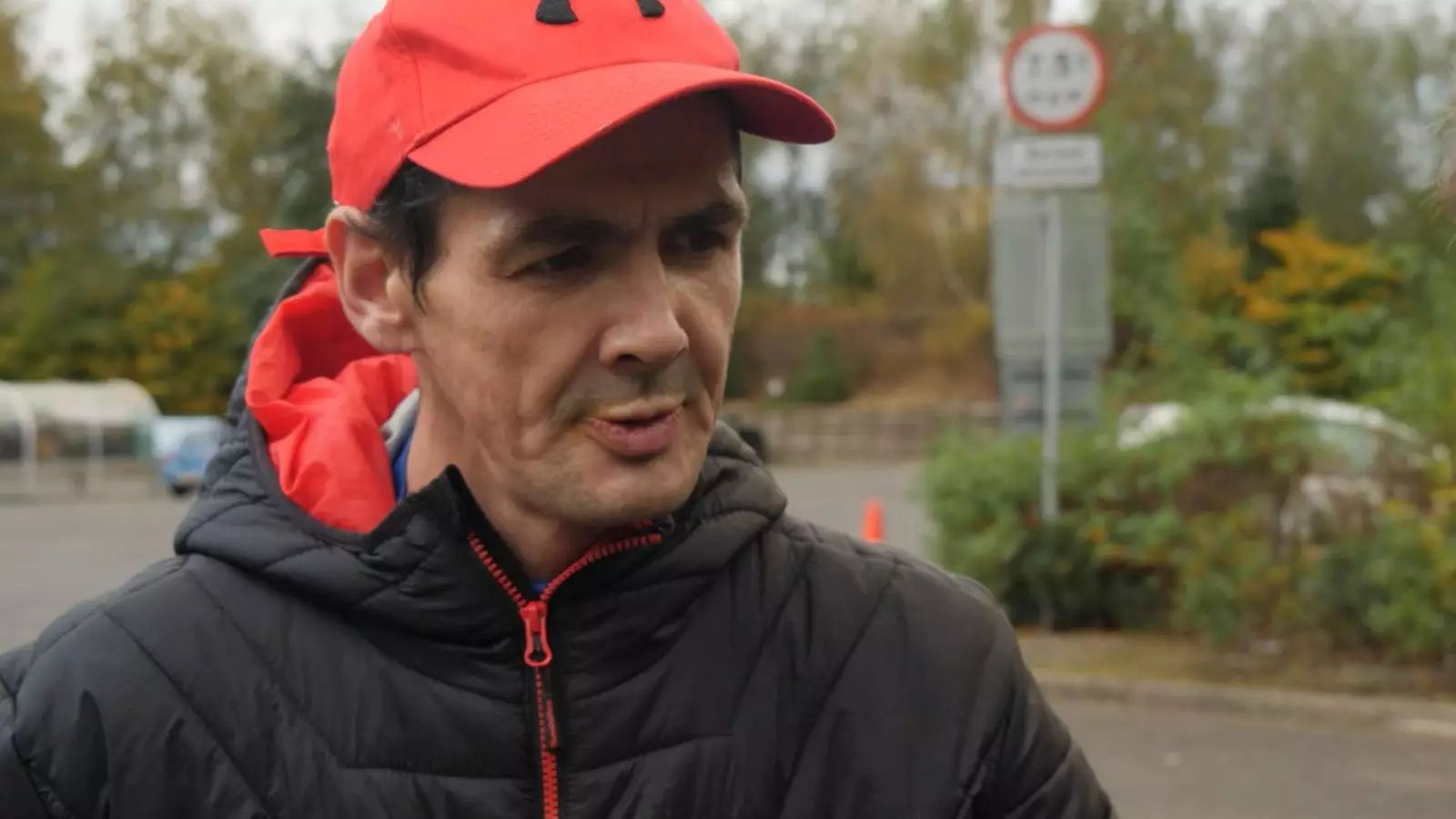In the frigid dawn of East Glasgow, an unsettling scene unfolds as individuals grapple with the harrowing grip of addiction. One such individual, Chris, a 41-year-old ex-painter and decorator, embodies the alarming truth of the city’s drug crisis. Armed with a syringe containing a potent brown liquid, his urgency for a fix overshadows the chaos surrounding him. “20ml of heroin for £10,” he exclaims, illustrating his twisted pride in the ease of procuring his next high. This moment captures not just an individual’s struggle but a systemic issue that has plagued Glasgow for years.
Chris’s descent into addiction began in 2007, following the tragic murder of his mother, an event that serves as a grim catalyst for his nearly two decades of substance abuse and crime. As he walks through the streets, a palpable sense of desperation radiates from him. “I just need to get this in me,” he states, an echo of countless lives being swallowed by similar desperation. His destination is a makeshift drugs den, hidden within the shadows of a supermarket parking lot—a haunting reminder of a community overshadowed by rampant drug use and violence.
In this sordid location, the ground is littered with blood-soaked needles and other paraphernalia, an environment that starkly highlights the dangers of addiction. In a moment that strips away his remaining dignity, Chris resorts to injecting drugs in an unhygienic and unsafe setting. As he awkwardly fumbles with both the syringe and his own clothing, the stark reality of his situation sets in. He acknowledges the filthy surroundings, confessing, “It’s really disgusting,” as he struggles to find a suitable vein.
This juxtaposition of vulnerability and humiliation is a potent symbol of how addiction strips individuals not only of their health but also of their dignity and humanity. Disturbingly, just a short distance away, a new government initiative—a “safer drug consumption room”—is poised to open, raising questions about its potential effect on men like Chris.
This innovative approach is aimed at providing a medical environment where individuals can use drugs under supervision, a concept already in place in several European cities with proven success. However, in Scotland, where drug-related deaths have skyrocketed, the introduction of such facilities is contentious. With data indicating that Scotland has the highest rate of drug-related deaths in Europe—1,172 lives lost in just one year—the urgency for effective solutions is palpable.
Yet, the promise of a safer consumption room is met with skepticism. Chris himself, despite his evident suffering, hesitates to place his trust in this system. While recognizing its potential benefits, he worries about the mistrust that saturates the community. “I think if you’re in that area? Yes,” he admits, but adds, “But do people really think it’s a trap?” The erosion of trust among users and the government speaks volumes about the larger issues at play.
The Political Backdrop of Addiction
Since the proposal for these safer consumption rooms emerged in 2016, Scotland has witnessed six prime ministers and over 8,000 drug-related deaths, an alarming trend that surfaces amid the fraught political landscape. With significant funds ring-fenced for this initiative, the stark contrast between these dedicated resources and the lack of support for more holistic treatment programs raises ethical dilemmas. Critics fear that such facilities may dilute the inherent dangers of drug use, potentially displacing critical funding and resources needed for comprehensive rehabilitation programs.
Opponents voice concerns that creating a supervised space for drug use may inadvertently attract criminal activity or foster a culture of dependency. However, Glasgow NHS officials argue that well-managed facilities are unlikely to become magnets for crime. This dichotomy between perception and reality highlights the complexities inherent in addressing substance abuse and addiction.
A Life Hanging by a Thread
As Chris contemplates his existence, reflecting on the possibility that his next hit could be his last, his response carries a haunting weight: “To be honest mate, that would be a blessing.” This candid admission encapsulates the despair of those ensnared by addiction, living on the edge of existence yet powerless to escape. For individuals like Chris, the struggle extends beyond merely surviving—their stories prompt urgent reflection on society’s responsibility to approach addiction with compassion and a commitment to restorative care.
In the face of an epidemic that continues to devastate lives and communities, the battle for recognition, resources, and real solutions becomes increasingly urgent. The fate of countless Chris’s lies in the balance, as Glasgow contemplates its next steps towards healing a broken society.

Leave a Reply